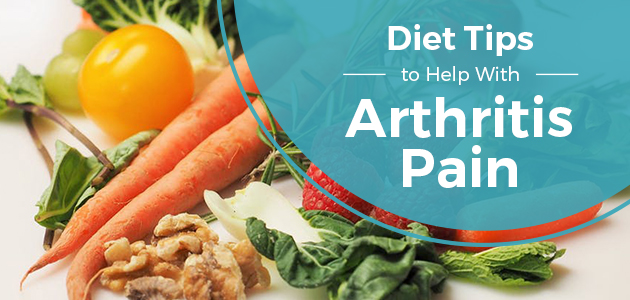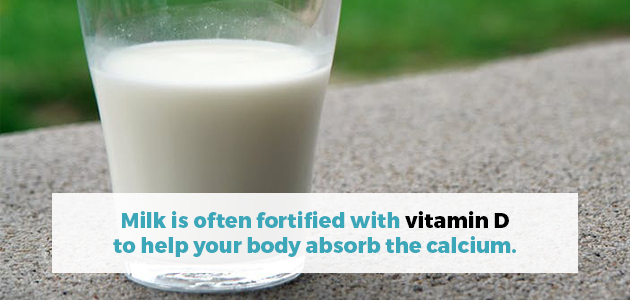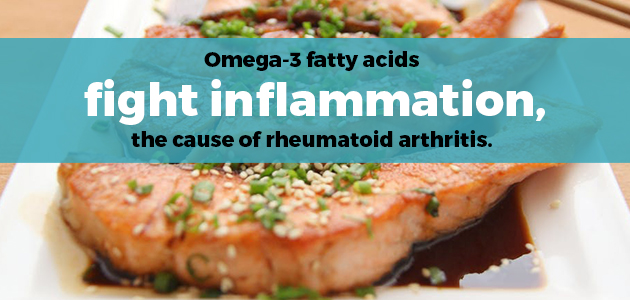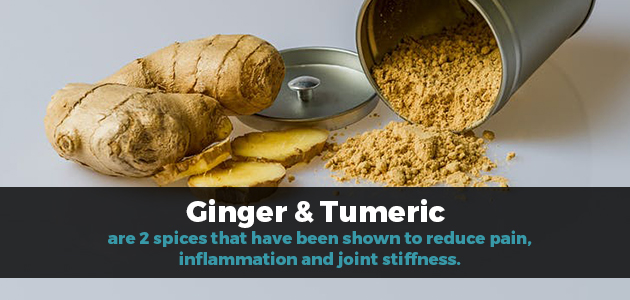If you’re dealing with frequent back or neck pain, your posture might be playing a bigger role than you think. Whether you're sitting at a desk all day or scrolling on your phone for hours,…
Arthritis, which is a broad category of joint diseases and conditions that cause joint pain, is the foremost cause of disability in the United States. Around 50 million adults, as well as 300,000 children, have some form of the condition.
The treatment for arthritis depends on the type of condition and the severity of the symptoms. Pain-reducing and anti-inflammatory medications are often used to manage symptoms. Many people also try physical therapy, changes in diet and exercise habits, and alternative therapies such as acupuncture. In cases where these less aggressive treatments don’t help, some people opt for surgeries such as joint repair, joint fusion, and joint replacement.
Can Diet Help Arthritis?
When the symptoms of arthritis are mild to moderate, diet may be able to help manage them. It can also play a role in preventing arthritis from developing or becoming worse. Although scientific studies haven’t fully proven the link between arthritis and nutrition, many people who have arthritis say that the food they eat affects the severity of their symptoms. Even if the evidence isn’t conclusive, the results of several trials and testimony of patients are enough to warrant giving dietary changes a try.
Preventing and Managing Arthritis With Diet
There isn’t one magic food or recommended diet for arthritis that will cure all symptoms. The most helpful foods vary from condition to condition and person to person. There are some foods and diets though that could help with arthritis pain. Trial and error and talking with your doctor will help you find what works best for you. With that in mind, here are some diet tips to try for managing and preventing arthritis.
Changes in diet may be helpful for both preventing and managing arthritis, especially when symptoms are mild or moderate. Many of the tactics for preventing arthritis also help to slow its progression once it starts and help to reduce pain associated with arthritis and related conditions.
-
- Maintaining a Healthy Weight: Making sure you’re at a healthy weight may be one of the best ways to prevent arthritis, as well as relieve symptoms. Staying at a healthy weight will not only improve your overall health but will also relieve pressure on your joints.One study in Arthritis & Rheumatism of overweight patients with knee arthritis found that losing just one pound took four pounds of pressure off of the knees. That means that losing ten pounds would alleviate 40 pounds of pressure — a significant improvement that will help the knee joints to wear down less over time.
Losing weight also lowers inflammation, the cause of some forms of arthritis such as rheumatoid and psoriatic. It can also reduce pain in general, as well as provide some other health benefits such as decreased risk of heart disease and stroke.
Eating a healthy, balanced diet and exercising regularly is the best way to keep a healthy weight. When it comes to diet, eat a good amount of vegetables, fruits, whole grains, lean protein, and healthy fats every day but avoid sugars and unhealthy fats.
Regular exercise is also important for losing weight or maintaining a healthy one. Those who have arthritis or are at high risk for it should be careful about the kinds of activities they do though. Running, for example, puts increased stress on joints. For those concerned about joint pain, walking is a better option.
- Maintaining a Healthy Weight: Making sure you’re at a healthy weight may be one of the best ways to prevent arthritis, as well as relieve symptoms. Staying at a healthy weight will not only improve your overall health but will also relieve pressure on your joints.One study in Arthritis & Rheumatism of overweight patients with knee arthritis found that losing just one pound took four pounds of pressure off of the knees. That means that losing ten pounds would alleviate 40 pounds of pressure — a significant improvement that will help the knee joints to wear down less over time.
-
- Calcium and Vitamin D: You’re probably well aware that calcium helps build strong bones. It’s important for everyone to get enough calcium, but it’s especially crucial for those with arthritis. Getting enough calcium can help stop arthritis from getting worse or leading to other health problems, such as osteoporosis and an increased risk of bone fractures. It may help prevent arthritis from developing in the first place as well.Calcium is much more effective when working in tandem with vitamin D. It may increase absorption of calcium by as much as 65 percent. When consuming calcium, you should always try to get some vitamin D as well.
The recommended daily allowance (RDA) of calcium for those 50 and younger is 1000 milligrams (mg). For those over 50, it’s 1200 mg. Some doctors and nutrition experts, however, recommend up to 1500 mg for those with inflammatory conditions. The tolerable upper limit (TUI), which is the highest amount you can take without negative health impacts, is 2500 mg.
Although some experts believe the numbers should be higher, the recommended amount of vitamin D in a day for someone aged 70 or under is 600 international units (IU) daily. For those over 70, the recommendation is 800 IU each day. The TUI is 4000 IU.
The best places to get calcium are dairy products such as milk, yogurt, and cheese, certain vegetables like kale, spinach, and broccoli as well as canned sardines, salmon with bones, and soy products.
Milk is often fortified with vitamin D to help your body absorb the calcium. Yogurt, breakfast cereals, and orange juice may also have vitamin D. Fatty fish such as salmon, sardines and tuna have small amounts. The body also creates Vitamin D when the skin comes into contact with the sun.
You can also take supplements to ensure you get enough calcium and vitamin D, but you should ask your doctor first because supplements can sometimes come with health risks.
- Calcium and Vitamin D: You’re probably well aware that calcium helps build strong bones. It’s important for everyone to get enough calcium, but it’s especially crucial for those with arthritis. Getting enough calcium can help stop arthritis from getting worse or leading to other health problems, such as osteoporosis and an increased risk of bone fractures. It may help prevent arthritis from developing in the first place as well.Calcium is much more effective when working in tandem with vitamin D. It may increase absorption of calcium by as much as 65 percent. When consuming calcium, you should always try to get some vitamin D as well.
-
- Vitamin C: Vitamin C has a number of health benefits, some of which can help alleviate symptoms of arthritis. Other times, though, studies have shown that it can make arthritis worse. The key to finding the right amount of vitamin C to take is understanding the type of arthritis you have and how vitamin C affects that type.For the majority of people, vitamin C is healthy. The RDA for men is 90 mg a day and for women, it’s 75 mg. Smokers require an extra 35 mg. The highest amount of vitamin C you can safely consume is 2000 mg in a day.
If you have osteoarthritis, the kind that develops slowly over time as joints deteriorate, or are at an elevated risk for it, you may not want to exceed your RDA, according to a 2004 study. The research, which was published in Arthritis & Rheumatism, found that higher doses of the vitamin over a long period worsened osteoarthritis in the knee.
When it comes to rheumatoid arthritis (RA), an autoimmune disease that causes inflammation of the linings in the joints, vitamin C may be helpful. Another study from the Annals of Rheumatic Diseases concluded that ingesting higher amounts of vitamin C reduces the risks of getting inflammatory arthritis.
This may be due to the vitamin’s antioxidant properties, which help it stop molecules that can prompt inflammation. It could also be because of its role in creating collagen, the main protein in bones and joints as well as its role in fighting infection, which has been linked to inflammation.
You can get vitamin C from a variety of fruits and vegetables. Citrus fruits, such as oranges and grapefruits, as well as other fruits such as strawberries, kiwis, and cantaloupe, are especially good sources. Vegetables such as peppers, Brussels sprouts, broccoli, and kale also have high levels of vitamin C. You can also get your daily dose from supplements but be wary of getting too much and get your vitamins naturally whenever possible.
- Vitamin C: Vitamin C has a number of health benefits, some of which can help alleviate symptoms of arthritis. Other times, though, studies have shown that it can make arthritis worse. The key to finding the right amount of vitamin C to take is understanding the type of arthritis you have and how vitamin C affects that type.For the majority of people, vitamin C is healthy. The RDA for men is 90 mg a day and for women, it’s 75 mg. Smokers require an extra 35 mg. The highest amount of vitamin C you can safely consume is 2000 mg in a day.
-
- Other Important Vitamins and Minerals: There is a wide range of other vitamins and minerals that may aid in preventing arthritis and alleviating arthritis symptoms. They’re all part of a healthy and balanced diet, but some are especially helpful for arthritis patients.Iron, which helps the body produce hemoglobin and prevent anemia, may be especially crucial for those with rheumatoid arthritis. Anemia is common in people who have RA and may be linked to inflammation. RA also hinders the body’s absorption of iron. The RDA for iron is eight mg each day for men and 18 mg per day for women until menopause when the RDA drops to 8. The TUL for iron is 45 mg.
Vitamin K helps with blood clotting, strengthens bones, and may get rid of inflammatory cells that play a part in causing rheumatoid arthritis. Getting enough vitamin K could also help reduce the risk of osteoarthritis in the knees and hands. You can get this vitamin from leafy greens such as kale, spinach, and lettuce as well as fermented soy products like soy sauce and miso. Vitamin K is so effective that eating just one serving of romaine a day could reduce the risk of hip fractures by half. The RDA is 120 mg for men and 90 mg for women.
Other vitamins and minerals that may help with arthritis include vitamin A, vitamin B-12, vitamin D, vitamin E copper, and zinc. Talk to your doctor for help figuring out what could work for you and your arthritis.
- Other Important Vitamins and Minerals: There is a wide range of other vitamins and minerals that may aid in preventing arthritis and alleviating arthritis symptoms. They’re all part of a healthy and balanced diet, but some are especially helpful for arthritis patients.Iron, which helps the body produce hemoglobin and prevent anemia, may be especially crucial for those with rheumatoid arthritis. Anemia is common in people who have RA and may be linked to inflammation. RA also hinders the body’s absorption of iron. The RDA for iron is eight mg each day for men and 18 mg per day for women until menopause when the RDA drops to 8. The TUL for iron is 45 mg.
-
- Omega-3 Fatty Acids: In recent years, omega-3 fatty acids have been touted as one of the healthiest things for you, whether you get it from fish or a supplement. As it turns out, it may be especially good for people with various forms of arthritis. Omega-3 fatty acids fight inflammation, the cause of rheumatoid arthritis. They’ve also been found to control joint pain and stiffness.Two important omega-3 fatty acids, EPA and DHA, can help with joint pain. They can be found in fatty fish, such as salmon, anchovies, tuna, mackerel, and sardines. Another type of omega-3 fatty acid, ALA, can be found in nuts and seeds.
There isn’t a standard recommended amount of this nutrient, but you should aim to eat fish that have a lot of EPA and DHA omega-3 fatty acids two to three times a week. While most health professionals recommend getting your omega-3s naturally through eating certain foods, you can also get it also taking fish oil supplements.
- Omega-3 Fatty Acids: In recent years, omega-3 fatty acids have been touted as one of the healthiest things for you, whether you get it from fish or a supplement. As it turns out, it may be especially good for people with various forms of arthritis. Omega-3 fatty acids fight inflammation, the cause of rheumatoid arthritis. They’ve also been found to control joint pain and stiffness.Two important omega-3 fatty acids, EPA and DHA, can help with joint pain. They can be found in fatty fish, such as salmon, anchovies, tuna, mackerel, and sardines. Another type of omega-3 fatty acid, ALA, can be found in nuts and seeds.
-
- Avoiding Inflammatory Foods: When you’re in pain due to rheumatoid arthritis, which is caused by inflammation, eating foods that cause more inflammation can make that pain worse.Many of the foods that can lead to inflammation are those that we generally consider unhealthy. Sugars, which can be called many different things, can trigger inflammatory messengers in the body. Anything that ends in “–ose”, such as glucose, sucralose, and fructose, is a potential suspect. Sugar substitutes such as aspartame can cause problems too, especially if your body is sensitive to them.
Omega-6 fatty acids, which are different than omega-3 fatty acids, are healthy in small amounts. If consumed in high amounts, however, it can lead to increased inflammation. These fatty acids are found in oils used for cooking as well as mayonnaise and some salad dressings.
Alcohol is another thing that can cause inflammation. Consume it in moderation or not at all if you’re having trouble with joint pain caused by RA.
- Avoiding Inflammatory Foods: When you’re in pain due to rheumatoid arthritis, which is caused by inflammation, eating foods that cause more inflammation can make that pain worse.Many of the foods that can lead to inflammation are those that we generally consider unhealthy. Sugars, which can be called many different things, can trigger inflammatory messengers in the body. Anything that ends in “–ose”, such as glucose, sucralose, and fructose, is a potential suspect. Sugar substitutes such as aspartame can cause problems too, especially if your body is sensitive to them.
- Herbs and Spices: Another way that some people attempt to combat arthritis pain is by adding certain herbs and spices to their foods. Simply by adding a little something extra to your meals, you can help relieve some of your joint pain.Turmeric, the ground-up root of the turmeric plant, is one such herb. The yellow-brown powder grows in India and Indonesia and is used in traditional Indian and Chinese medicine to treat arthritis. Recent studies have substantiated this belief, especially when it comes to preventing the condition. It’s been shown to reduce pain, inflammation, and joint stiffness. Just don’t take it in higher-than-recommended doses as it can act as a blood thinner and upset the stomach.
Ginger, which is related to Turmeric, is another spice that could help people with arthritis. The root of the ginger plant, either dried or fresh, can similarly reduce joint pain and inflammation like ibuprofen does. Ginger, like turmeric, has been used in traditional Asian medicine for many years.
A host of other herbs and supplements have been said to help with preventing arthritis and managing joint pain. While there often isn’t enough research to prove their effectiveness, they may be worth trying. Just be sure to talk with your doctor first and ensure there won’t be any interactions with medications. Black currant oil, borage oil, flaxseed, melatonin, rose hips and stinging nettle have all been reported to help with arthritis.
The Benefits of a Healthy Diet
No matter who you are, you can benefit from a healthy diet. One area in which it can help is managing arthritis-related pain, keeping arthritis from worsening, and preventing an arthritis condition from occurring in the first place. From simply eating healthier and controlling weight to eating more foods that are high in certain vitamins and minerals, diet can be helpful in managing arthritis pain.





